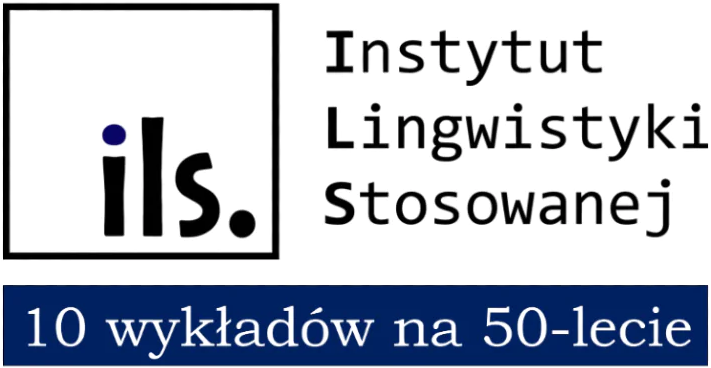Talk 7

Professor Michał Krzyżanowski
Department of Informatics and Media
Uppsala University
More information
Analysing Discursive Shifts: Critical Discourse Studies in/and Exploration of Discourse and Social Change
My presentation will elaborate on the notion of discursive shifts (Krzyżanowski 2013, 2018a, 2020b) used for over a decade as one of the central analytical and interpretive notions in analysing discourse and social change within the wider perspective of Critical Discourse Studies in general, and of the CDS’ Discourse-Historical Approach (or DHA; see Krzyżanowski 2010; Reisigl 2017; Wodak 2001) in particular. Building on such classic critical discourse notions as, in particular, recontextualization (Bernstein 1990, Krzyżanowski 2016) – with its focus on hegemonic ordering of discourse as well as its diffusion across spatial and temporal scales – discursive shifts have been central in connecting analysis at micro- and meso-level discourse dynamics while relating these to the wider facets of macro-level, global and transnational discursive change (Fairclough 1992). As a concept, discursive shifts have also enabled tracing various social-actors’ specific, ‘localised’, context-dependent responses to wider social, political and economic dynamics, both seen as incremental or gradual change (Krzyżanowski 2018b) and/or as ‘crises’ of various nature (Krzyżanowski 2019; Krzyżanowska & Krzyżanowski 2018, Krzyżanowski & Krzyżanowska 2022, Krzyżanowski et al 2023; Moffitt 2016). In order to highlight the viability as well as applicability of discursive shifts and their recontextualization-based logic, the paper will highlight their application in the critical deconstruction of discourses carrying normalization of contemporary politics of exclusion (Krzyżanowski 2020; Wodak 2015). My special focus will be on, in particular, discourses surrounding the 2014ff so-called ‘Refugee Crisis’ in Europe (Krzyżanowski, Triandafyllidou & Wodak 2018) and the ways in which the wider perspective of discursive shifts was helpful in tracing differentiated dynamics of public discourses and their diachronic slide into politics and regimes of exclusion in such countries as, inter alia, Poland, Sweden or the UK. I will show how deploying discursive shifts not only points to the linear or incremental discourse dynamics but also to its strongly mediation-based nature (Krzyżanowski & Ekström 2022). This allows tracing the spread of the immigration-related moral panics (Cohen 1972; Krzyżanowski 2020b) including via recontextualization of far right populist and neoliberal discourses and frames (Phelan 2019; Wodak & Krzyżanowski 2017) and of ‘borderline discourses’ of un/in-civility (Krzyżanowski and Ledin 2017; Krzyżanowski et al 2021) in the wider public imagination.
References
- Bernstein, B. (1990). The Structuring of Pedagogic Discourse. London: Routledge.
- Cohen, S. (1972). Folk Devils and Moral Panics. London: Routledge.
- Krzyżanowska, N., & Krzyżanowski, M. (2018). ‘Crisis’ and Migration in Poland: Discursive Shifts, Anti-Pluralism and the Politicisation of Exclusion. Sociology, 52(3), https://doi.org/10.1177/0038038518757952
- Krzyżanowski, M. (2010). The Discursive Construction of European Identities: A Multi-Level Approach to Discourse & Identity in Transforming European Union. Frankfurt am Main: Peter Lang.
- Krzyżanowski, M. (2013). Policy, Policy Ocmmunication & Discursive Shifts. In: P. Cap & U. Okulska. Analyzing Genres in Political Communication. Amsterdam: John Benjamins, 101-133.
- Krzyżanowski, M. (2016). Recontextualisations of Neoliberalism and the Increasingly Conceptual Nature of Discourse: Challenges for Critical Discourse Studies. Discourse & Society 27(3). https://journals.sagepub.com/doi/10.1177/0957926516630901
- Krzyżanowski, M. (2018a). Discursive Shifts in Ethno-Nationalist Politics: On Politicisation and Mediatisation of the ‘Refugee Crisis’ in Poland. Journal of Immigrant & Refugee Studies 16 (1-2). https://www.tandfonline.com/doi/full/10.1080/15562948.2017.1317897
- Krzyżanowski, M. (2018b). ‘We Are a Small Country that Has Done Enormously Lot’: The ‘Refugee Crisis’ & the Hybrid Discourse of Politicising Immigration in Sweden. Journal of Immigrant & Refugee Studies 16 (1-2). https://www.tandfonline.com/doi/full/10.1080/15562948.2017.1317895
- Krzyżanowski, M. (2019). ‘Brexit’ and the Imaginary of ‘Crisis’: A Discourse-Conceptual Analysis of European News Media. Critical Discourse Studies 16(2). https://www.tandfonline.com/doi/full/10.1080/17405904.2019.1592001
- Krzyżanowski, M. (2020a). Normalization and the Discursive Construction of ‘New’ Norms and ‘New’ Normality: Discourse in/and the Paradoxes of Populism and Neoliberalism. Social Semiotics 30:4, https://www.tandfonline.com/doi/full/10.1080/10350330.2020.1766193
- Krzyżanowski, M. (2020b). Discursive Shifts and the Normalisation of Racism: Imaginaries of Immigration, Moral Panics and the Discourse of Contemporary Right-Wing Populism. Social Semiotics 30:4 https://www.tandfonline.com/doi/full/10.1080/10350330.2020.1766199
- Krzyżanowski, M. & P. Ledin. (2017). Uncivility on the Web: Populism in/and the Borderline Discourses of Exclusion. Journal of Language & Politics 16(4). https://benjamins.com/catalog/jlp.17028.krz
- Krzyżanowski, M., A. Triandafyllidou & R. Wodak. (2018). The Mediatization and the Politicization of the “Refugee Crisis” in Europe. Journal of Immigrant & Refugee Studies 16 (1-2). https://doi.org/10.1080/15562948.2017.1353189
- Krzyżanowski, M., M. Ekman, P-E. Nilsson, M. Gardell & C. Christensen. (2021). Uncivility, Racism, and Populism: Discourses and interactive practices in anti- & post-democratic communication. Nordicom Review 42(S1). https://sciendo.com/article/10.2478/nor-2021-0003
- Krzyżanowski, M. & M. Ekström (2022). The Normalisation of (Right-Wing) Populism and Nativism Authoritarianism: Discursive Practices in Media, Journalism and the wider Public Sphere/s. Discourse & Society 33:6 https://doi.org/10.1177/09579265221095406
- Krzyżanowski, M. & N. Krzyżanowska (2022). Narrating the ‘New Normal’? COVID-19 and Discursive Shifts in (Right-Wing) Populist Imaginary of Crisis as a Normalisation Strategy. Discourse & Society 33:6, Online first https://journals.sagepub.com/doi/full/10.1177/09579265221095420.
- Krzyżanowski, M., R. Wodak, H. Bradby, M. Gardell, A. Kallis, N. Krzyżanowska, C. Mudde, & J. Rydgren. (2023). De/Constructing the ‘New Normal’: Towards a Research Agenda on Crisis and the Normalization of Anti- & Post-Democratic Action. To appear in Journal of Language & Politics.
- Moffitt, B. (2016). The Global Rise of Populism. Stanford: Stanford University Press.
- Phelan, S. (2019). Neoliberalism, the Far Right, and the Disparaging of “Social Justice Warriors”, Communication, Culture and Critique 12(4).
- Reisigl, M. (2018). The Discourse-Historical Approach. In: J. Richardson & J. Flowerdew (eds). The Routledge Handbook of Critical Discourse Studies. London: Routledge, 44-59.
- Wodak, R. (2015). The Politics of Fear. London: Sage.
- Wodak, R. & M. Krzyżanowski. (2017). Right-Wing Populism in Europe & USA: Contesting Politics & Discourse beyond ‘Orbanism’ and ‘Trumpism’. Journal of Language & Politics 16:4, https://benjamins.com/catalog/jlp.17042.krz
